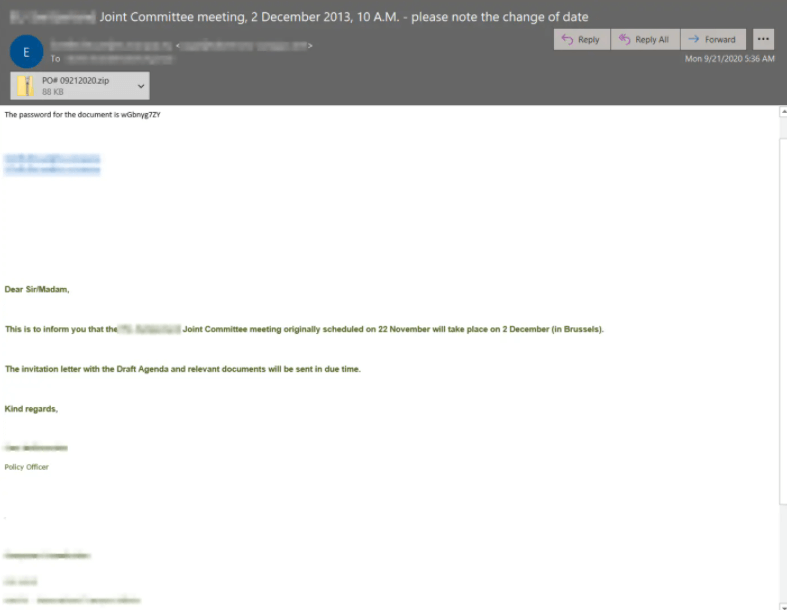If you find an attached pack to an email these days, you should be particularly careful: the highly developed malware Emotet could be lurking in it.
As Microsoft reports on Twitter, such emails are currently said to be traveling around the world and in different languages. A password is attached to the messages disguised as work or invoice emails. This approach ensures that software on mail gateways cannot look into the archive and thus cannot see the threat in it. The text in the mail asks the victim to open the archive with the password contained in the message. It contains a document with supposedly further information on the subject of the mail.
To make one thing clear right away: just receiving the mail and even opening the archive and following it does not yet result in an Emotet damage. Only when a victim activates it in the Word, does the malware get onto the computer.

In the past, Emotet hacked on emails that were usually very well faked and even users sometimes had to look several times to uncover the scam. To do this, the Emotet makers evaluated users that had already been checked and used them to create scam emails with dangerous attachments. In companies, there were emails in the name of the boss that linked to existing projects and thus had a particularly effect. But this time the Emotet developers obviously didn’t bother too much: Microsoft reports in terms of subject and relate to outdated orders or projects from previous years.
The Emotet is considered to be one of the greatest current malware threats worldwide. The malware also causes high levels of damage in USA. The malware reaches the computers of companies and users, primarily their emails.
